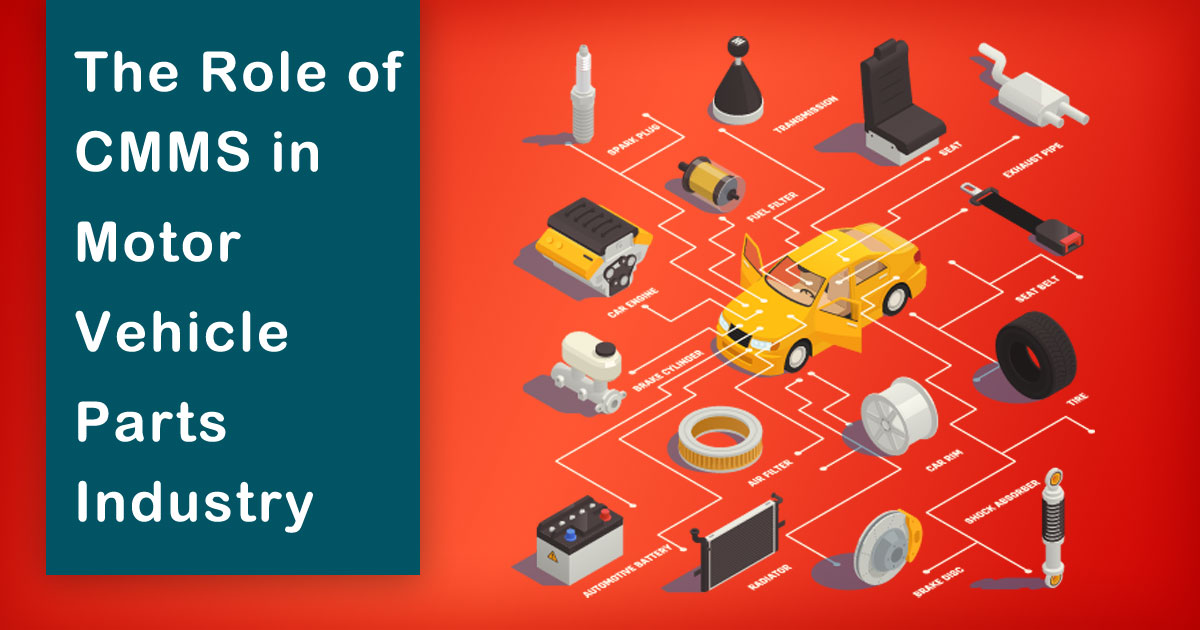Introduction
In today’s fast-paced world, the motor vehicle parts industry plays a crucial role in ensuring the smooth functioning of various sectors such as transportation, manufacturing, and logistics. With the increasing complexity and diversity of vehicle components, it has become essential for businesses in this industry to effectively manage their maintenance and inventory processes. This is where Computerized Maintenance Management Systems (CMMS) come into play. In this article, we will explore the role of CMMS in the motor vehicle parts industry, focusing on the Indian context.
Understanding CMMS
CMMS is a software-based solution that aids organizations in planning, tracking, and managing their maintenance operations. It provides a centralized platform for recording, scheduling, and analyzing maintenance tasks, as well as managing spare parts inventory. By leveraging technology, CMMS systems enhance operational efficiency, reduce downtime, and improve asset performance.
Importance of CMMS in the Motor Vehicle Parts Industry
1. Optimal Maintenance Planning and Execution:
CMMS enables motor vehicle parts businesses to streamline their maintenance processes. By providing a comprehensive overview of all assets, equipment, and components, CMMS facilitates effective planning of preventive and corrective maintenance tasks. Maintenance schedules can be created, and work orders can be generated automatically based on predefined criteria such as time-based or condition-based triggers. This proactive approach helps prevent unexpected breakdowns and reduces unplanned downtime, thereby optimizing production and ensuring customer satisfaction.
2. Efficient Inventory Management:
The motor vehicle parts industry deals with a vast range of components, from small nuts and bolts to complex engine parts. CMMS systems help organizations maintain accurate records of their inventory levels, track usage patterns, and forecast future requirements. By automating the procurement process, CMMS ensures that spare parts are available when needed, eliminating the risk of stockouts or overstocking. This results in cost savings, minimized inventory carrying costs, and improved productivity.
3. Enhanced Asset Performance:
CMMS allows businesses to monitor the performance and condition of their assets in real-time. By capturing and analyzing data such as equipment uptime, failure rates, and maintenance costs, organizations can identify trends and patterns that may indicate underlying issues. With this information, proactive maintenance measures can be implemented, including predictive maintenance strategies that use advanced algorithms to predict failures before they occur. These preventive measures maximize asset uptime, extend equipment lifecycles, and improve overall operational efficiency.
4. Regulatory Compliance and Documentation:
The motor vehicle parts industry is subject to various regulations and quality standards. CMMS assists organizations in adhering to these requirements by maintaining detailed records of maintenance activities, inspections, and compliance checks. Documentation can include service logs, maintenance reports, and certificates of compliance. In the event of audits or inspections, CMMS provides quick and easy access to relevant information, ensuring compliance and reducing the risk of penalties or legal issues.
5. Data-driven Decision Making:
CMMS systems generate a wealth of data related to maintenance activities, asset performance, and inventory management. By leveraging this data through advanced analytics and reporting tools, organizations can gain valuable insights into their operations. These insights can inform decision making, such as identifying areas for process improvement, optimizing maintenance strategies, or allocating resources more effectively. Data-driven decision making enables organizations to stay ahead of the competition and adapt to changing market dynamics.
Conclusion
In the Indian context, the motor vehicle parts industry is a critical sector that drives economic growth and development. To thrive in this competitive landscape, businesses must embrace technological advancements such as CMMS. The role of CMMS in this industry cannot be overstated, as it offers numerous benefits, including optimal maintenance planning and execution, efficient inventory management, enhanced asset performance, regulatory compliance, and data-driven decision making. By adopting CMMS, organizations in the motor vehicle parts industry can unlock their full potential, reduce costs, and improve overall operational efficiency, thereby gaining a competitive edge.
As the motor vehicle parts industry continues to evolve and become more complex, the need for effective maintenance and inventory management becomes increasingly critical. CMMS provides a comprehensive solution that addresses these challenges and empowers organizations to stay ahead in a dynamic and demanding market.
In conclusion, CMMS plays a pivotal role in the motor vehicle parts industry in India. By leveraging technology and data-driven approaches, organizations can optimize maintenance processes, efficiently manage inventory, enhance asset performance, ensure regulatory compliance, and make informed decisions. Embracing CMMS not only drives operational efficiency but also positions businesses for long-term success and growth in the ever-evolving motor vehicle parts industry.








